ACT Statement on CPD: Disappointment at the lack of a consensus on a final declaration


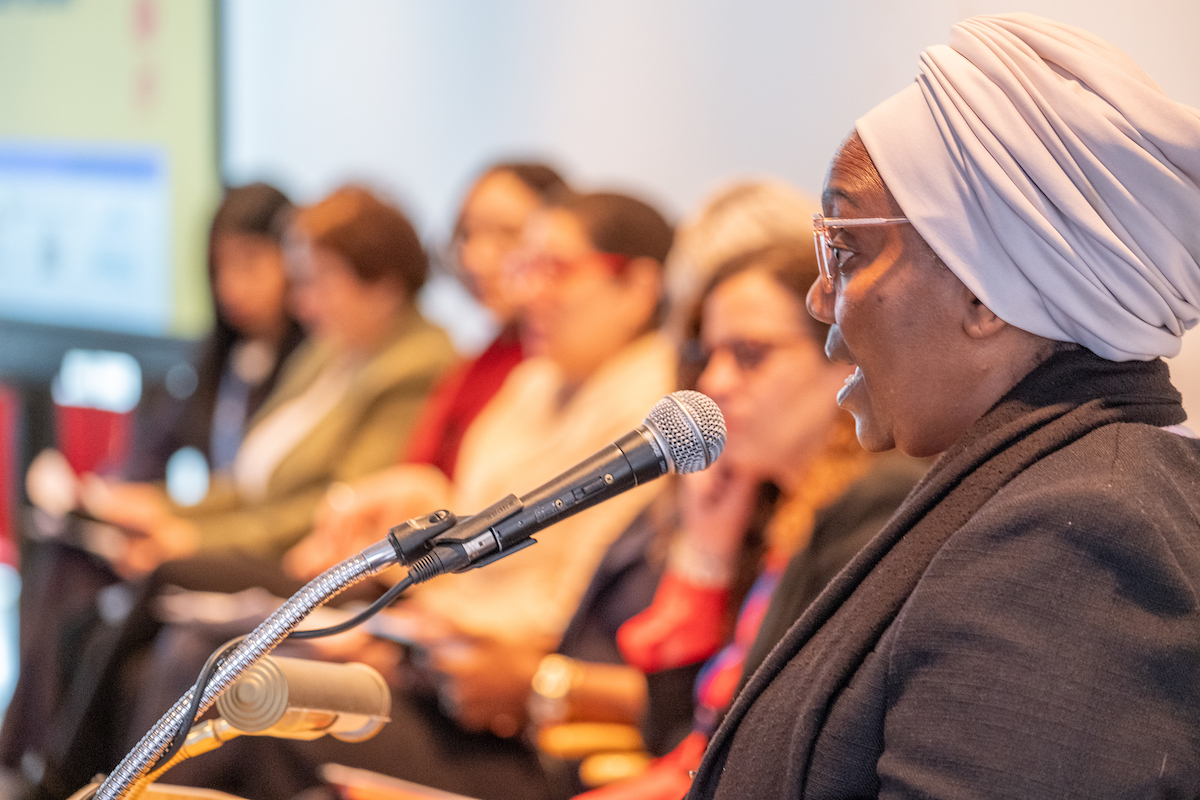
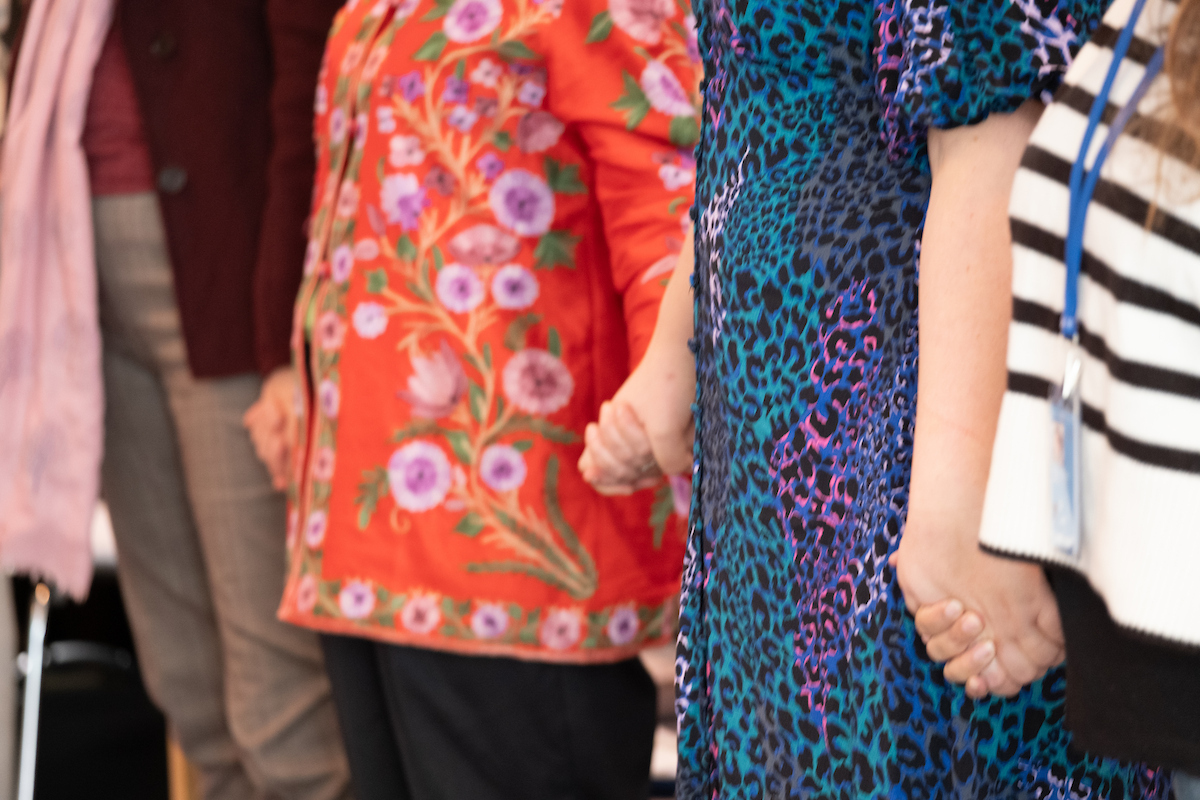

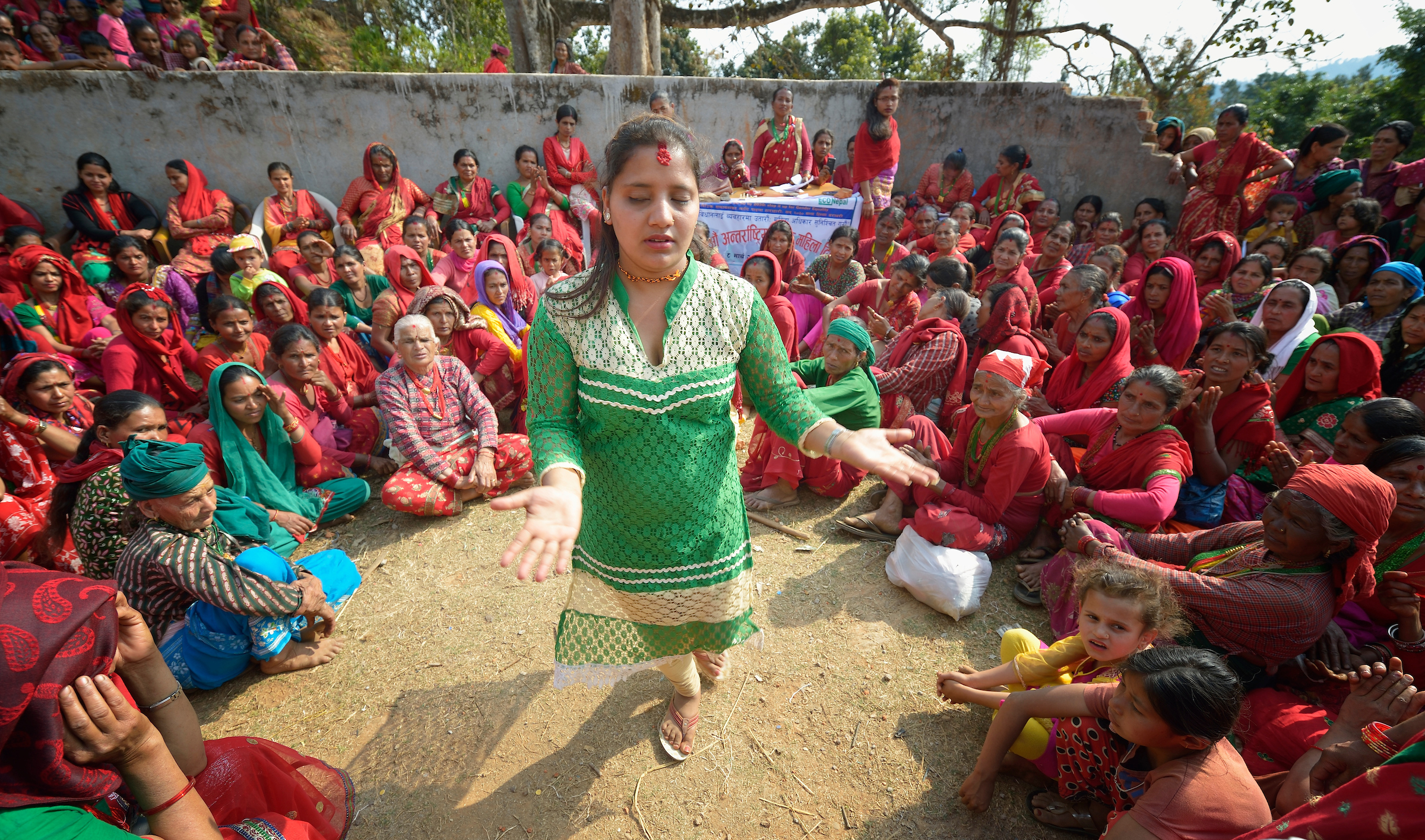
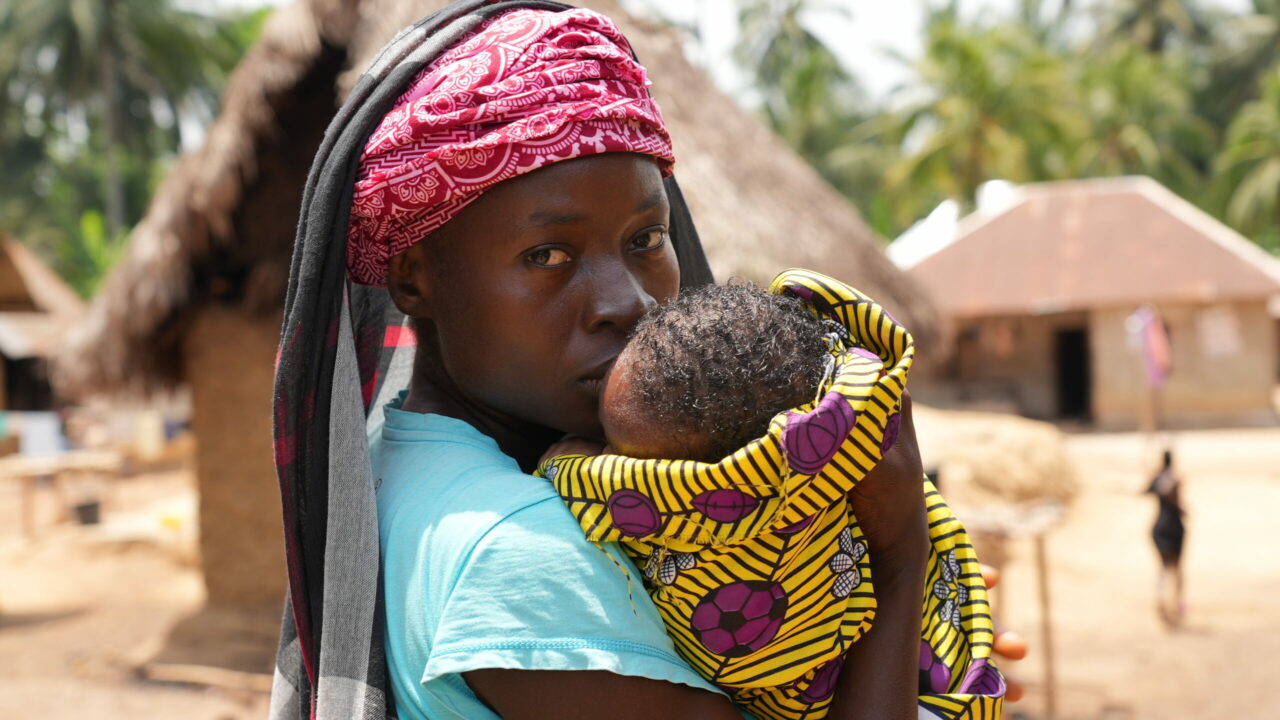
Focus on West Africa
Fiona Connelly.
PHOTO: Christian Y. Bundu/Christian Aid
An innovative project led by the ACT Sierra Leone Forum has seen more than 200 men and boys become gender justice changemakers. Promoting Gender Transformative Approaches in Sierra Leone through Positive Masculinity addresses violence against women and girls and was developed with ACT’s Gender Justice programme.
Evidence shows that men and boys must be active allies in the struggle for gender equality, transforming harmful gender norms and promoting positive behaviours. The changemakers mentor and train other men and boys to advance gender equality in their communities and advocate for gender-balanced decision-making at local and national levels.
Using a faith-based, community-driven approach, the project promotes the positive aspects of masculinity and aims for long-term behavioural change. The changemakers’ training includes working with women and girls to develop and practice inclusive, equitable, and sustainable approaches to gender justice. These address the needs and rights of all individuals across the gender spectrum.
Gendered challenges
Gender-specific challenges Sierra Leone women face include:
These issues are not limited to Sierra Leone and can be found in several African and other countries.
Transformations
The project has led to the following transformations:
ACT Sierra Leone Forum accompaniment important
The ACT Sierra Leone Forum has accompanied the male changemakers throughout, providing evidence for communities that the project is having the desired effect. Gender transformative masculinity has been discussed in the media and in awareness raising programs, encouraging public discussion of policies to promote gender equality.
A collaborative programme
Developed with ACT’s Gender Justice programme, the project involved ACT member Christian Aid and the Christian Council of Sierra Leone, the Side-By-Side Movement for Gender Justice, the Ministry of Gender and the National Movement for Emancipation and Progress (NaMEP).
A path for the future
By addressing the root causes of gender inequality and engaging men as agents of change, this project will help create a more inclusive Sierra Leone.
By Fiona Connelly, from Daisy Yator’s interview with Ms.Keziah Kargo, Christian Council of Sierra Leone General Secretary. Thank you to ACT Alliance Gender Justice staff Rachel Tavernor for additional information. A shorter version of this article appeared in the ACT Alliance Annual Report 2023.
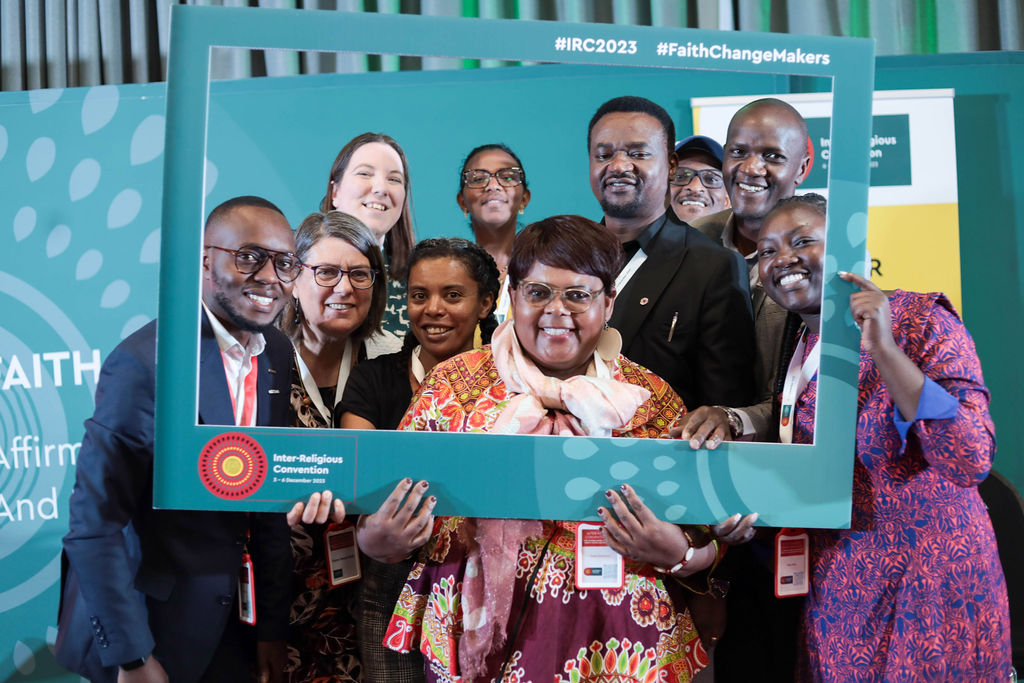
Reflecting on the faith methodologies for gender justice, ACT forum representatives from Uganda, Ethiopia, Tanzania, and Zimbabwe shared their experiences working as faith-based organizations.
In Ethiopia, the forum ‘s methodology looked at theological reflections, through two major lenses of the Ethiopian Orthodox as well as Evangelical churches, who are also part of the ACT forum. Through the theological reflections on gender justice, they developed resources for integrating gender into the curriculum, especially in parishes as well as in theological colleges. Read more here.
“One of the added value working with faith actors in theological reflections for gender justice is how we can get to communities and influence, through the church structures,” says Million Shiferaw, NCA and ACT Ethiopia forum member.
In Uganda, addressing transformative masculinities is one of the key areas that the forum engages in gender justice work, countering cultural norms through media campaigns and working with male faith leaders as champions for gender justice.
“There is a need to appreciate transformative masculinities as one of the key pillars in ensuring human rights protected at the community level and affirming human dignity and justice for all” Vincent Mayega, RACOBAO, representing ACT Uganda forum.
In the Zimbabwe forum, one of the approaches, working with the ACT Zimbabwe forum’s gender community of practice, was on integrating gender in peacebuilding work. During the 2023 general elections in Zimbabwe, the forum members monitored gender-based violence (GBV) and provided referral pathways. In addition, the forum has been active in the 16 days of activism campaigns, working with several other actors.
“Working with faith actors in Zimbabwe has enabled us to reach out to communities and as Ecumenical Church Leadership Forum (ECLF), use the Gender Transformative Approach (GTA) which influences the change of attitudes, behavior and norms that are at the very core of unequal power relations and gender inequality. The approach has been key to addressing the root causes of gender-based violence,” says Pamhidzai Thaka from ACT Zimbabwe forum and ECLF
In advancing reproductive justice, Dr. Paul Mmbando brought the perspective on how the voices of faith leaders are unique in bringing a transformative impact on reproductive justice. Church hospitals, including the Evangelical Lutheran Church in Tanzania (ELCT), provide access to information and reproductive justice services. Dr. Paul ,Who is also a medical practitioner noted the added value of working with faith actors in Tanzania, as one of the effective advocacy avenues in reaching communities, as well as in influencing policymaking.
“In our work, we work a lot through inter-faith approach and we have made great strides, when faith leaders speak, they bear with them a unique language,” says Dr.Paul
ACT Alliance’s global gender justice program is of great essence in bringing together members through conversatorio, learning together as well as working as ACT Alliance at local context on gender justuce work.
“One of the major work for the global gender justice program has been to address gender inequalities that are considered taboo or difficult by engaging members and other stakeholders in dialogues to listen to one another and working at local context.” says Elaine, ACT’s Global Gender justice programme manager.
Co-hosted by ACT Alliance and other partners , the inter-religious convention brought together over 160 faith leaders and activists from more than 25 countries globally to deliberate on 3 main thematic areas on gender justice , justice and peace as well as freedom of religion and belief and inclusion.
The three day convention, from 3rd to 6th December brought a unified voice of faith as change makers, in affirming human dignity, justice and freedom for all.
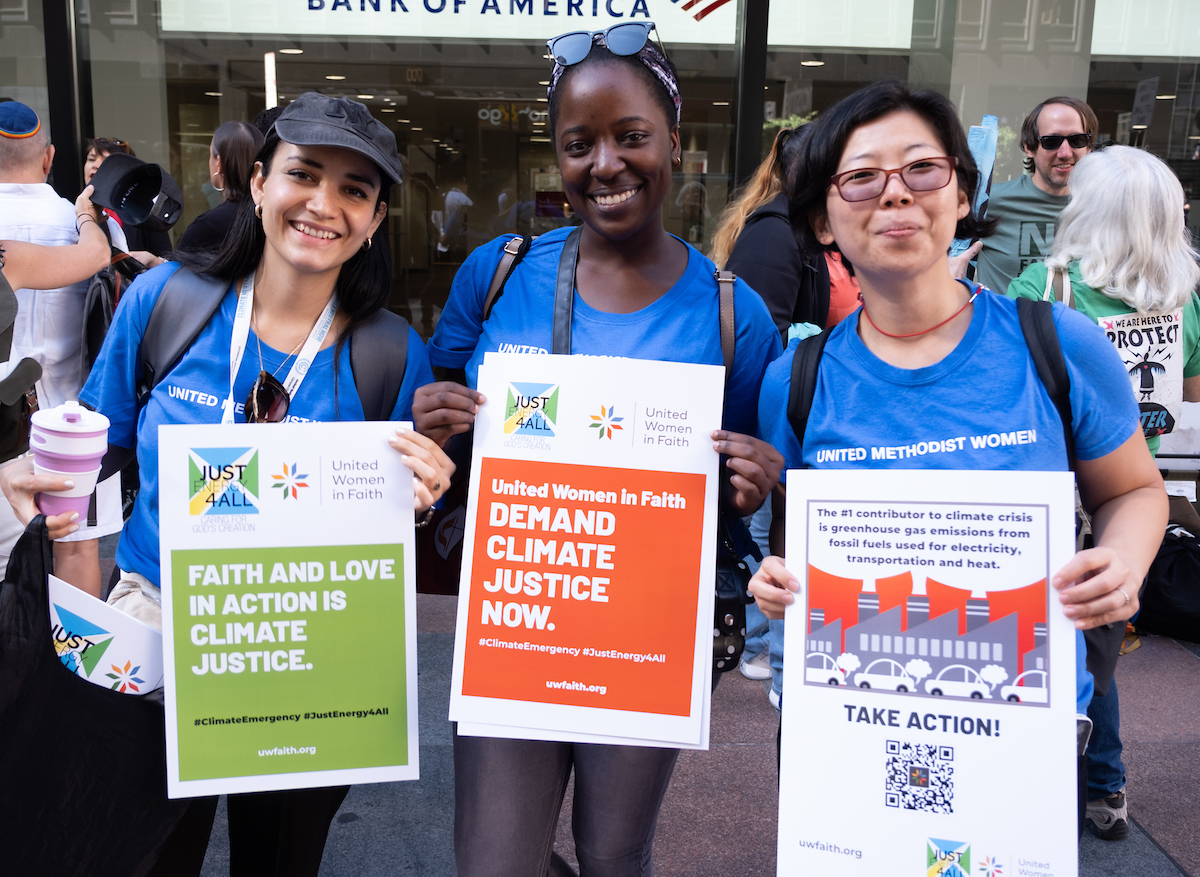
A blog post by Simagaliso Hove, Lutheran Development Service (Zimbabwe) and ACT Governing Board member
Why is crucial for Faith-Based organizations to work on the intersections of economic and gender justice?
Economic inequality and injustice remain one of the major obstacles to gender justice as women in most countries continue to be disproportionately disadvantaged when it comes to equitable access and distribution of economic and financial resources and privileges. Therefore, economic gender justice issues are part of fundamental human rights. By their nature, Faith Based Organizations are in a better position to influence traditions and norms in most communities as religion plays an important role in most people’s everyday lives. FBOs are also respected by governments and other duty-bearers and participate in platforms where they can influence necessary changes in policies that continue to perpetuate discrimination. A lot of work is already happening with FBOs raising awareness and working towards the prevention of GBV, child marriages, gender pay gaps, and unjust legislation among many others. However, to be able to achieve more sustainable results, FBOs should start focusing on where gender justice and economic justice intersect rather than continue with fragmentation or compartmentalization.
What are the main learnings on this intersection, that you can share from your work in Zimbabwe?
What this has taught us is that there cannot be a real struggle for gender justice without addressing issues of economic justice.
What are the main challenges?
How economic justice and gender justice are grounded in faith, from a diaconal perspective?
The current LDS Strategy 2019 – 2023 is titled “And by our actions, we demonstrate our faith”. Faith influences a lot of the diaconal actions we do, it influences how we engage with communities and duty-bearers. It moves us into action.
Our actions are motivated by the fact that ‘every being is created in God’s image’ and is therefore equal in the eyes of the Creator. If all are equal, no one should be discriminated against in accessing opportunities and protection. Our environment should be able to listen to all voices without discrimination or preference. This is how our actions can demonstrate our faith. It is the practice of our faith through diaconal initiatives that transform us to achieving the “leaving no one behind” commitment. Our diaconal activities are supposed to work hard in promoting equal opportunities for economic empowerment – an economy where no one is left behind, responding and preventing GBV – an economy where if one member is injured all work together to repair and get rid of the hurting, empowering women to rise to higher decision-making positions (in the church, in society and in politics) – an economy where all voices are equally important, as well as advocating for more caring and inclusive economic systems that do not discriminate against gender.
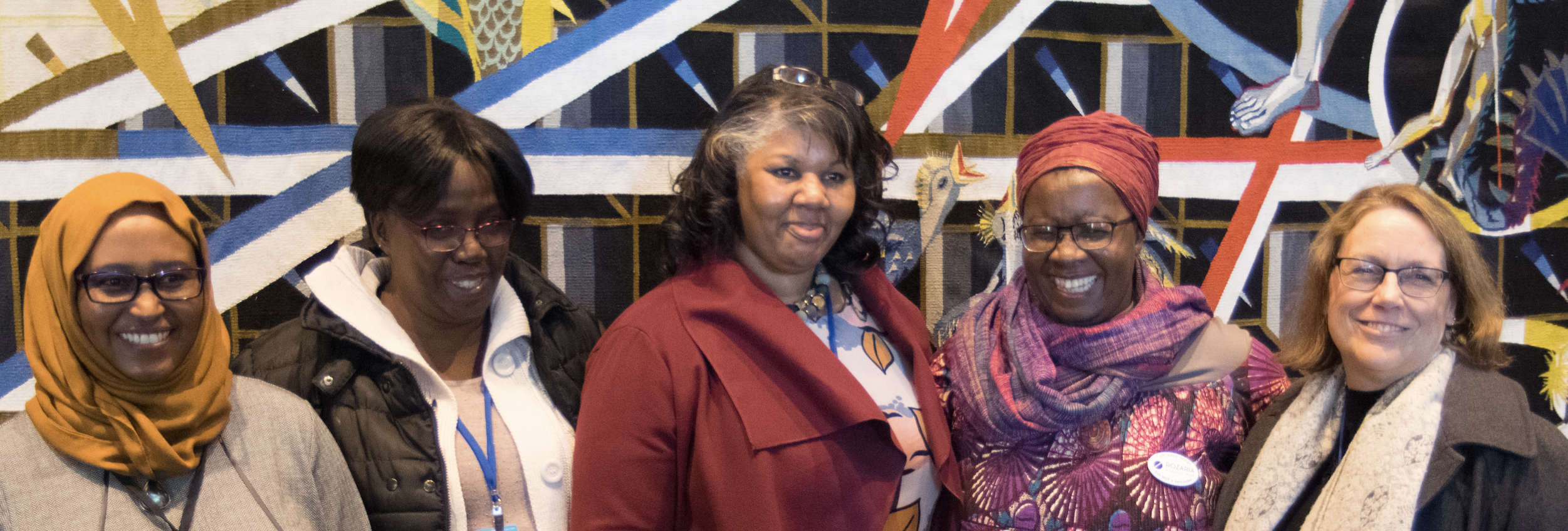
We spoke with Alison Kelly (UK) the ACT Alliance Representative to the United Nations, based in New York, and Dr. Marianna Leite (Brazil), ACT Alliance’s Global Advocacy and Development Policy Manager about their goals and hopes for ACT’s global advocacy work.
By engaging in effective advocacy at local, national, regional and global levels, ACT Alliance contributes to positive and sustainable change in the lives of people affected by poverty and injustice. ACT’s advocacy work is faith- and rights-based, grounded in evidence and rooted in the experience of forums and members.
Q: Why is advocacy important for ACT Alliance?
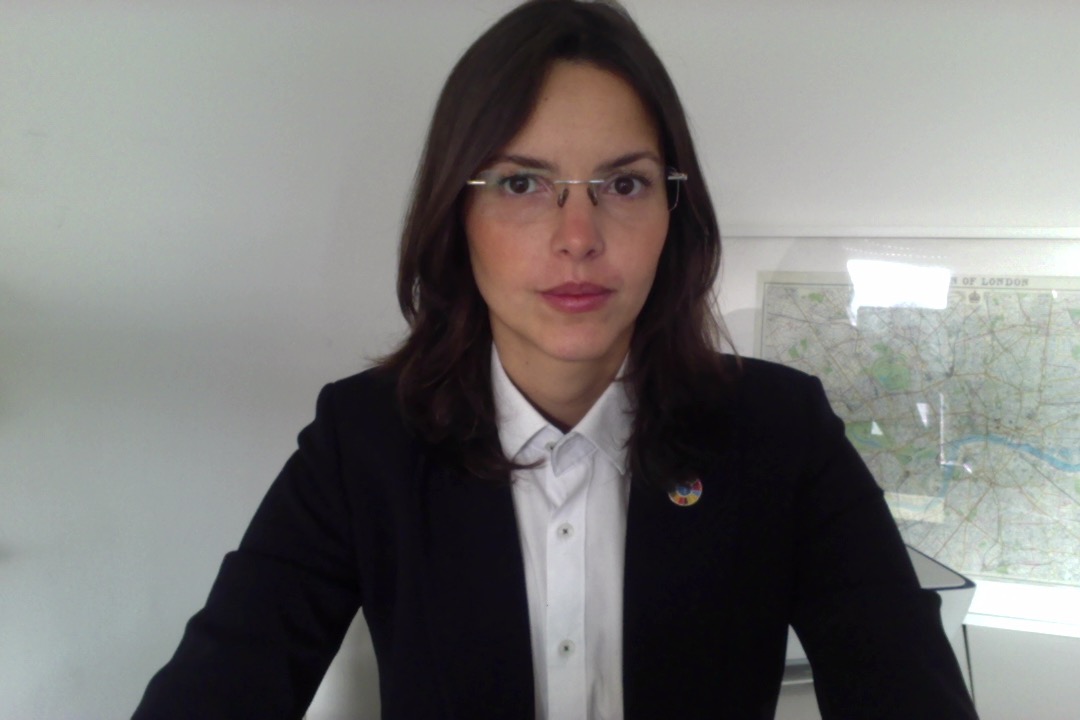
Marianna Leite (M): It’s our responsibility to fundamentally change how things are now and envisage a future where everyone and the planet thrives. Policy and advocacy are deeply connected to humanitarian and development work. There is also a theological aspect to it – really believing in our prophetic voice and raising a faith voice and the voices of the communities we serve.
Alison Kelly (A): There’s an increasing sense of urgency. With climate now being seen as an existential issue, there’s an urgency to advocate for transformational change.
M: We need to make some waves – positive waves of change. ACT has a role both in attending to urgent needs and striving for everyone to be able to enjoy basic rights in future.
A: Transformation also means switching our thinking. The economy is a human system that should work for people and the planet. Our advocacy strategy is solutions focused. That’s really important. We know what works from our members’ experience in their communities.
M: And we are all advocates. We all try to influence each other; it’s part of being human. One of the things we say in the ACT Advocacy Academy is that advocacy can be as big as your creativity can reach.
A: It’s opening the discussion. Advocacy can be local, it can be behind the scenes, it can be private; there are all these different mechanisms.
M: Informal and silent advocacy can be much more impactful than any visible external advocacy. It is crucial for members to consider when to say yes or no to advocacy and to do a risk analysis.
Q: What are the challenges and opportunities facing ACT’s global advocacy programme?
M: A major challenge is the toxic anti-NGO or anti-civil action narrative that now permeates society. Governments are cutting funding for the lifesaving work we do. The same negative undertone comes from fundamentalist groups that are backtracking hard won human rights. It’s hard to avert more damage because a narrative has a life of its own. Yet this is also an opportunity for ACT. We are a faith actor promoting human rights as part of a transformative approach to sustainable development. We can push back against the pushbacks. ACT is unapologetic about our support to International Human Rights Law, International Humanitarian Law, and their principles.
A: We speak to the moral and ethical dimension of issues, and we have the technical expertise to be credible. Holding faith and rights together gives us a strong platform.
M: How to maintain hope is also part of our role as faith actors. We can hope for a better future, and we can be the change that we want to see in the world. I see that as part of ACT being prophetic.
Recent global advocacy initiatives
Addressing COVID vaccine inequity
By early 2022, it was clear that global COVID-19 vaccine distribution was not as rapid as the virus’ mutation and spread. Most doses of the vaccines were acquired by and administered in developed countries. The most vulnerable people, especially in developing nations, were yet again left behind.
ACT responded by continuing to advocate for vaccine equity and addressing vaccine hesitancy. We published resources and hosted regional workshops on Vaccine Equity and Hesitancy in the Africa and Asia Pacific regions. ACT called on governments to support the creation of a binding treaty on pandemic preparedness. ACT’s General Secretary, as a civil society representative to the COVAX facility, pushed funders to make sure that vaccines reach those in developing nations.
New Advocacy Package
Developed over three years with ACT’s advocacy and policy reference group, an approvals process for all documents produced under the ACT banner was piloted in 2022. Created for forums and all groups of ACT Alliance members that want to do joint advocacy, it is part of a new advocacy package meant to ensure that ACT always speaks with one united voice with coherent and mutually reinforcing language. Member suggestions led to adjustments and user-friendly resources and design templates along with a forum-centred advocacy guidance, all part of the final package to be launched in 2023.
This interview appears in the ACT Alliance Annual Report 2022, available in English, French and Spanish.
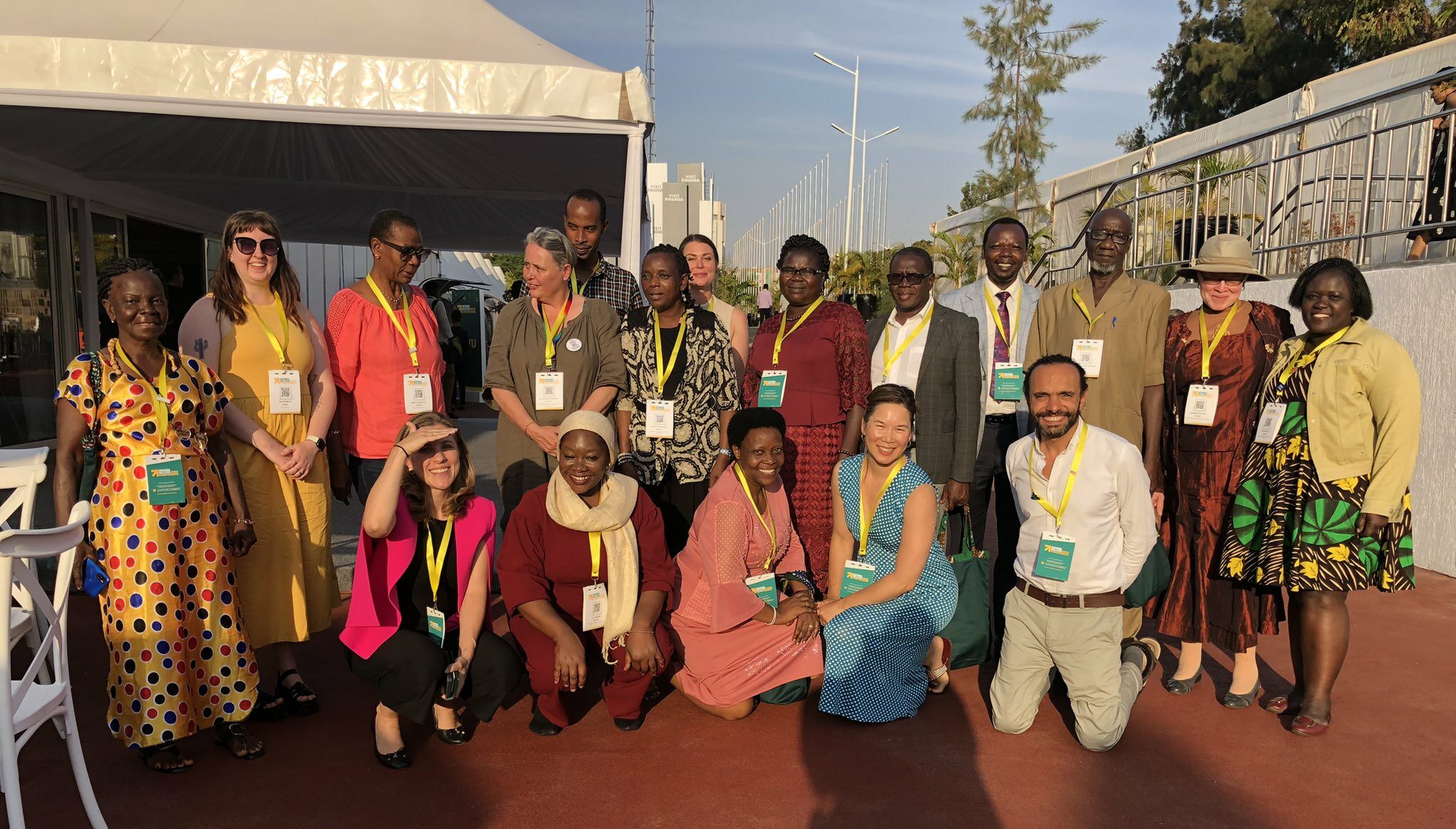
Picture credit: Karin Hugsén , Act Church of Sweden
Over 25 diverse faith-based organisations attended Women Deliver 2023, which concluded yesterday in Rwanda. ACT Alliance co-convened a ‘meet and greet’ at the conference, for faith actors to connect, share, and strategize on our collective work for gender justice.
Rising fundamentalisms, which are pushing back hard against women’s rights at every level and across the world, religion can often be perceived as only contributing to the problem of gender inequalities. Patriarchal gender norms continue to be packaged in the language of religion because it legitimises them, it makes them appear divinely ordained and unchangeable. Anti-rights actors are mobilising religious language to block or even reverse progress on gender equality.
Nearly 84 per cent of the world’s population identifies with a religious group. Many faith-based organisations, who participated in Women Deliver, are advocating for the importance of engaging in faith-based partnerships to advance gender justice.
A focus of the Women Deliver conference is advancing Sexual and reproductive health and rights, which will not be achieved simply by changing laws, reducing poverty, or improving education and health care services. While these are all essential steps, we also need to challenge and eliminate discriminatory social norms that constrain bodily autonomy, agency and rights. To this end, the ACT Gender Justice Programme is working closely with our members, national and regional forums and platforms to harness the value-based power of faith actors to advance Sexual and Reproductive Health and Rights.
For example, the ACT Argentina Forum is confronting fundamentalist and hateful discourses which oppress, manipulate, and deny the fundamental freedoms of women and girls in all their diversity. The forum is developing and sharing liberating faith narratives and theological perspectives that encourage the rereading of sacred texts and cultural contexts. It is also creating safe spaces of trust, which are open, intimate and focused on active listening without judgement. Together, we are working to support and amplify those prophetic voices who are courageously calling for transformative action to achieve justice for all.
In the report, ‘Looking Back to Look Forward: The Role of Religious Actors in Gender Equality since the Beijing Declaration’, which ACT Alliance co-published, we argue that understandings of the gender-religious nexus is critical for achieving Sustainable Development Goal 5, and make the following recommendations: